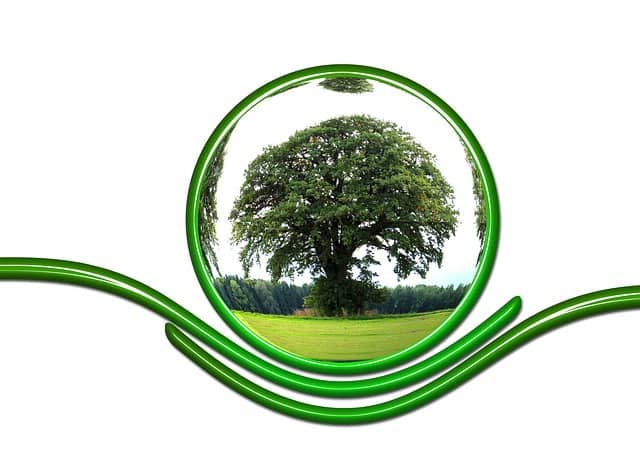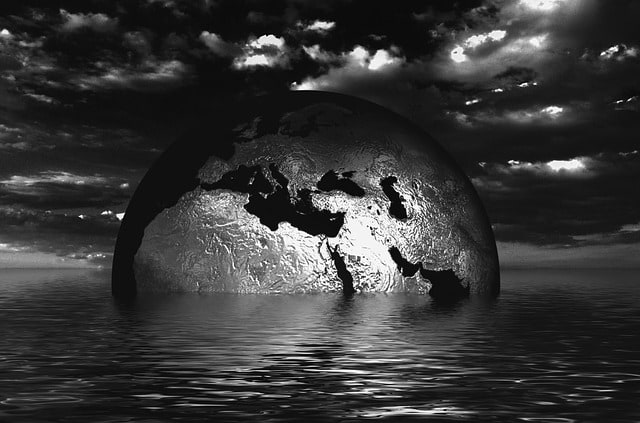The bad habits of human beings are a major source of environmental destruction. Though the environment already suffers, there are things we can all do to help Mother Nature to heal and grow. As we embrace the concept of “reduce, reuse, and recycle,” we can continuously learn new ways of thinking that can help us to live more sustainably. Making simple changes in your daily lifestyle won’t cost much but can prove beneficial for the environment.
With the increase in population, we have started pumping out resources at a rate much higher than these resources can be re-generated. This has created so much of stress on our planet that our our environment has started degrading and we all can see its effects as of today in the form of global warming and climate change. Though many countries have taken several steps to promote environmental conservation and improve environmental health but unless we do not reduce our consumption of resources that are proving lethal for our environment, we cannot provide a sustainable future to our children.
1. Change the way you get around. Use public transportation, carpool with others, ride a bike, or walk places that aren’t very far. These practices are good for you socially as well as physically. When you choose to travel using these methods, less greenhouse gases go out into the air to heat the Earth.
2. Be mindful of eating habits. Donate unopened food you don’t need and use leftovers to make different meals instead of discarding them. All over the world, hunger and starvation has created devastation for many people. Some of us forget this when we are offered the constant convenience of food at our disposal. The less food we throw away, the more we have to help feed others and the less strain we put on the Earth to constantly produce more.
3. Grow your own food or buy it locally. Growing your own food is a fun experience and can also be therapeutic. Food that is homegrown or locally produced on small farms is also free of the chemicals that tend to come with foods bought from mass retailers. The less pesticides and energy needed to grow food for everyone, the more clean the air and water can be, along with a higher quality of soil.
4. Embrace secondhand shopping. Second-hand shopping keeps you from contributing to the mass production of goods and items that are ruining the environment by abusing natural resources. Shop at thrift stores and buy other used goods whenever possible. You will get just as much use and enjoyment from the products, but at a much cheaper price.
5. Replace standard products with energy efficient versions. For example, traditional light bulbs can be replaced with LED lights to use less electricity. Likewise, products with an Energy Star seal of approval use less power, thus requiring less of our natural resources to fuel them.
6. Buy recycled products. The more products you buy that are recycled or made by sustainable methods, the more support you give to companies who keep the good of our planet in mind. This also reduces the company profit for products that were made irresponsibly.
7. Spread the word. Knowledge truly is power. The more you tell others about eco-friendly living and teach them how they can make a difference through sustainable practices, the more likely it is they will become conscious of the choices they make as they come to understand the powerful effects that our behaviors and habits have on the Earth .
8. Stop using plastic water bottles. It’s been well-documented that plastic water bottles cover a vast amount of landfills that destroy the land and kill animals, which does much harm to the planet while helping to contribute to pollution and unsightly litter. Choose bpa-free water bottles that can be reused frequently for an extended period of time.
9. Try your best to use less water. There’s a desperate need for clean water on a global scale, and there are various ways to help out with this shortage in your home. Turn off the water as you brush your teeth and wash your face or take shorter showers. These are some of the many small habits that can save hundreds of gallons of water a day.
10. Discourage littering whenever possible. Litter is not only unsightly, it kills animals and leads to further pollution of the ground and air. If you don’t litter and you know someone who does, let them know the dangerous consequences of their actions.
11. Our soil loves to be fed just as we do. There are many food remnants you throw away that could be used to improve the quality of soil and help plants and gardens to grow.
12. Shop locally. Local shopping supports small businesses and lessens pollution because the need for mass distribution by unsustainable means is eliminated.
13. Save energy in your home whenever possible. There are various ways to conserve energy to lessen the amount of resources we use to fuel electricity. Unplugging things when they’re not in use, using less heat and air conditioning, and embracing the use of energy efficient products are effective energy saving techniques.
14. Go shopping using reusable shopping bags. Reusable shopping bags can be quite trendy and they help to reduce the use of plastic and paper bags that will most likely be thrown away later.
15. Buy a water filtering system. If you buy a water filter, you can usually test your water to ensure that it’s free of chemicals. Filters also allow you to save money because they are able to purify a large amount of tap water, eliminating the need to frequently buy bottled water from the store.
16. Cut back on your use of paper products. Print less things from the computer and use digital filing instead. Replace paper towels with napkins and dish rags that are made of cloth and can be washed and reused.
17. Plant trees. Planting trees promotes biodiversity and allows us to breathe better. Trees lessen the effects of climate change and converts carbon to oxygen. Otherwise, the excess carbon would combine with other greenhouse gases to rapidly heat our Earth. With so many trees destroyed, we must do what we can to restore them and acknowledge their importance.
18. If you must drive a car, make sure that it is in optimal condition. Cars with tune-ups that are well cared for tend to get better gas mileage and send less smog and emissions into the air that contribute to pollution and global warming. If possible, trade in gas guzzling cars for an electric or hybrid vehicle.
19. Use batteries that can be recharged. Batteries that must be disposed of tend to end up in landfills, and their properties are toxic to the Earth. Rechargeable batteries have a long life span and are also money savers.
20. Don’t put things others can use in the trash. Just as secondhand shopping offers you affordable options for things you may need, the same principle applies to products you own that could come in handy for someone else. Always donate gently used clothes, furniture, and miscellaneous items that could be of value to the next person.
21. Use a thermostat that can adjust itself. Automatic thermostats reduce the amount of pollution in the environment because excess energy is often used from nonrenewable sources that are harmful to the planet. These thermostats remain at a set and comfortable temperature so that you won’t have to remember to adjust them accordingly to save energy.
22. Don’t wash clothes unnecessarily. It’s estimated that we use more than 30 gallons of water for each load of clothes that we wash. Many times, we wash clothes out of habit instead of necessity. If your clothes don’t smell or haven’t gotten dirty, skip washing them until it is necessary and only wash when you have a full load.
23. Make good use of electronic devices. Consider all the ways that you can maximize the usage of your digital gadgets, including your phone and computer. For example, you can use your phone to create to-do lists instead of writing notes on paper. You can sign up for digital subscriptions to magazines instead of receiving it via mail. Furthermore, mobile and computer research provides us with education and more tips to improve the environment.
24. Eat less meat. Even if you aren’t a vegetarian, cutting back on meat will help to preserve the natural resources that many animals require, along with the resources it takes to produce and distribute meat. When you do buy meat, choose to eat meat that was raised and fed sustainably.
25. Make sure that your indoor plumbing is at its best. Even minor leaks and plumbing issues in your home should always be taken care of immediately. Just one leaky faucet or toilet can use more than a hundred gallons of water a day!
26. Reach out to city officials. Talk to local representatives and governing officials about promoting sustainable practices in your area if a system isn’t already in place. It could be as simple as setting up easily accessible recycling stations or encouraging residents to donate more often.
27. Learn how to properly dispose of chemicals. When you pour toxic waste down the drain, it doesn’t just disappear. It often finds its way into larger bodies of water and can’t be filtered out. When you get rid of chemicals outside, you poison the soil and leave plants unable to grow in the area.
28. Help out. Volunteer to help with conservation efforts in your community or give contributions to an organization that does.
29. Use you dryer less often. Hang your clothes up to dry instead of using a drying machine. If you have to use a dryer, only use it for a short amount of time, then air dry to save valuable energy.
30. Keep the environment in mind everywhere you shop. Buy cleaning products that are eco-friendly and be on the lookout for items that have been made sustainably to reduce your carbon footprint.
31. If you can have a cool roof, go for it! Painting your roof white can save you up to 40% off your energy bill during the summer months by deflecting heat.
32. Don’t use products containing microbeads. We all want clean, glowing skin. Unfortunately, some cosmetic products use microbeads that are especially dangerous to the environment to exfoliate skin. These tiny beads don’t disintegrate and pollute the water while killing fish and other wildlife as they find their way into rivers and oceans.
33. Use the dishwasher, but only when it’s full. A very easy practice, it saves a large amount of water when you wait until the dishwasher is full before turning it on.
34. Try to repurpose glass products instead of throwing them away. Glass we throw away will remain on earth long after we are gone before it begins to decompose. The more discarded glass that piles up, the greater the danger to our ecosystems.







